1. “Here we are now, entertain us” – Nirvana, “Smells Like Teen Spirit” (1991)
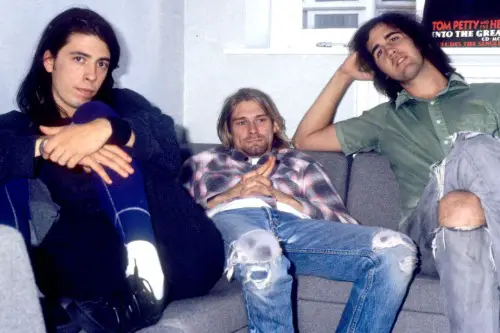
Kurt Cobain muttered this now-iconic line with a sneer that captured a generation’s boredom and cynicism. It’s a cry from a culture already numbed by overexposure to media and desperate for meaning. Today, we scroll endlessly through TikTok and streaming platforms, stuck in the same passive loop of needing constant distraction. The line feels like it was written for the algorithmic age, where entertainment is the opiate of the overworked.
Cobain wasn’t just being ironic—he was diagnosing a creeping malaise that’s only worsened. Corporate media has since optimized our attention spans for profit, and our numbness is no accident. Every click, view, and scroll is tracked and monetized. We’ve become the product, and Kurt saw it coming before cookies were digital.
2. “Feed my eyes, can you sew them shut?” – Alice in Chains, “Man in the Box” (1990)
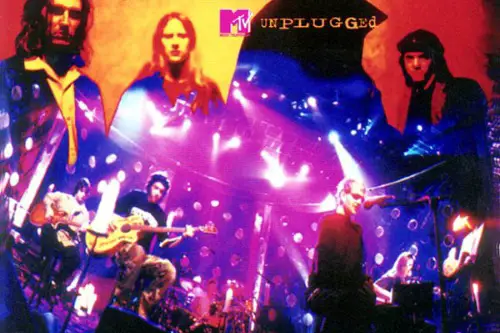
Layne Staley snarls this chilling line as if he’s begging the world to stop poisoning him—and we’re still listening. The lyric reflects our insatiable appetite for content, even when it blinds us. Today’s corporate media pipeline demands our attention, then dulls us with curated narratives and endless streams of curated reality. We’re asking to have our eyes sewn shut, figuratively—and then wondering why we can’t see anything real.
This line was born from disillusionment with media and mass control—Staley himself said it was inspired by conversations about veal cages and censorship. It speaks directly to our era of echo chambers and algorithmic feeds that bury nuance under clickbait. The more we consume without question, the less we notice we’re being shaped. In our corporate dystopia of curated facts and hidden manipulations, “sew them shut” feels like the anthem of the overdosed mind.
3. “I’m only faking when I get it right” – Soundgarden, “Fell on Black Days” (1994)
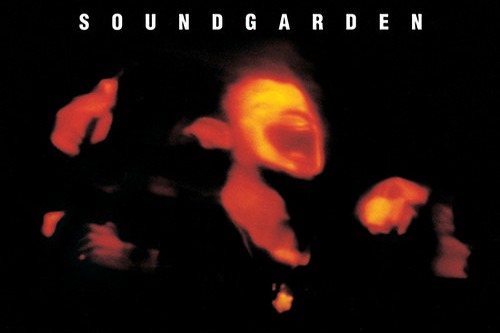
This line hits like a truth we’ve all whispered to ourselves in a bathroom stall between Zoom calls. It’s about imposter syndrome—feeling like any success you have is unearned, like you’re winging it while everyone else has the manual. In today’s hyper-competitive workplace culture, where perfection is expected and vulnerability is a liability, this lyric feels prophetic. We’re all pretending we’re fine, that we’ve got it together, even as we quietly fall apart.
Chris Cornell’s voice carries the weight of that quiet fraudulence. He wasn’t just singing about personal failure—he was naming the anxiety that festers in performance-based systems. Today, that faking has become part of the job description. “Getting it right” often means playing the part, not actually thriving—and Cornell nailed that decades before burnout became a buzzword.
4. “What else should I be? All apologies.” – Nirvana, “All Apologies” (1993)
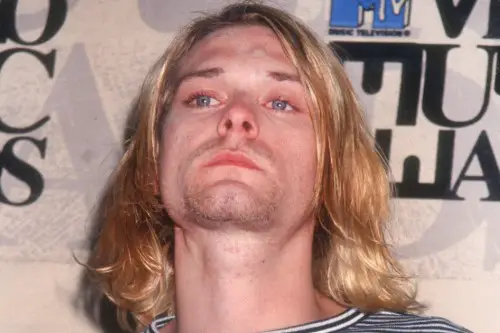
Cobain’s weariness in this lyric is a quiet scream. It sounds like something whispered in a corporate performance review: constantly asked to be more, different, better. Today’s workplace culture loves buzzwords like “authenticity,” but only if it conforms to the company brand. The contradiction between individuality and expectation is suffocating.
This lyric encapsulates the chronic imposter syndrome that modern workers carry. You’re never quite enough, and you’re always expected to apologize for being too much or too little. Cobain wasn’t sorry—but he knew we’d have to be. It’s a resignation letter in poetic form.
5. “I’m half the man I used to be” – Stone Temple Pilots, “Creep” (1992)
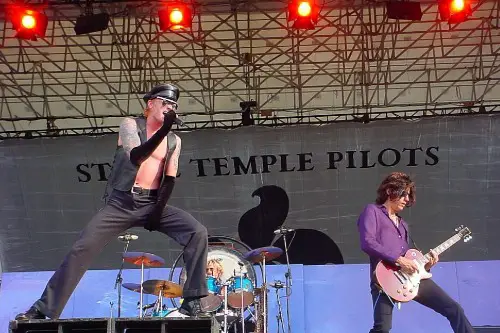
This lyric has a resigned, broken-down quality that feels eerily familiar today. In a society that prizes hustle above health, it’s no surprise that burnout is a badge of honor. We give too much, too often, to systems that don’t care about us. And then we look in the mirror and wonder where we went.
In the ‘90s, this line sounded like a breakup lament. Today, it reads like a post-capitalist status update. It’s what happens when you’re expected to produce endlessly, without ever being restored. This lyric aches for the person we left behind in the grind.
6. “I’m looking California and feeling Minnesota” – Soundgarden, “Outshined” (1991)
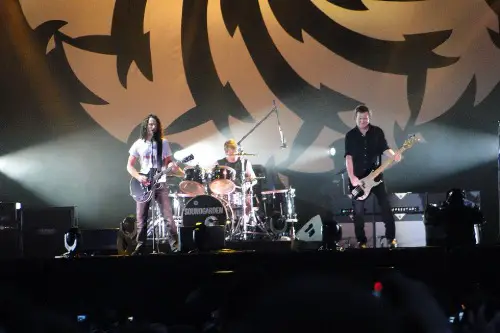
This is a line about disconnect—between image and feeling, presentation and truth. Chris Cornell gave us one of the most poignant grunge metaphors for faking it through a performance. That same dissonance plays out today on LinkedIn, Zoom calls, and corporate retreats. We smile, we’re “doing great,” and we’re dying inside.
Today’s culture values vibe over veracity. And “looking California” is now a lifestyle brand sold back to us as success. But “feeling Minnesota”? That’s the burnout, the anxiety, the imposter syndrome we’re told to hide. Cornell nailed the emotional labor economy decades before it had a name.
7. “Despite all my rage, I am still just a rat in a cage” – The Smashing Pumpkins, “Bullet with Butterfly Wings” (1995)

Billy Corgan screamed what every grunge kid felt: anger without agency. That line could be the slogan of the modern American workplace. We’re encouraged to feel empowered—until we question the system. Then we’re reminded we’re replaceable.
The lyric seethes with frustration at false freedom. Today, we call it “quiet quitting,” but really, it’s just learned helplessness in a gilded trap. Corgan wasn’t just being dramatic—he was telling the truth. The rage is still here, but the cage just got sleeker.
8. “I’m a creep, I’m a weirdo / What the hell am I doing here?” – Radiohead, “Creep” (1992)
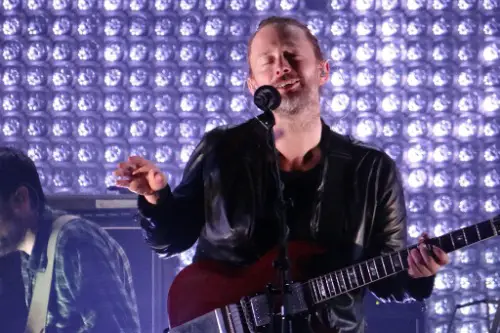
Okay, we’re stretching the grunge label slightly here, but “Creep” was adopted by the same disaffected ’90s crowd—and for good reason. Thom Yorke’s brutal self-interrogation resonated with anyone who felt out of place in a world that demanded perfection. In the corporate dystopia of today, this line could be the internal monologue of every underpaid, over-surveilled office worker just trying to survive. You’re in the meeting, on the Zoom, in the workflow—but you’re still asking: what the hell am I doing here?
Yorke’s raw delivery turns self-loathing into something strangely communal. It’s the voice of someone trapped in systems that never stop measuring and evaluating. In 2025, we may dress it up as “performance optimization,” but it’s the same feeling of not belonging, just dressed in business casual. This lyric was a warning, not a whine—and we’re still ignoring it.
9. “This is not for you” – Pearl Jam, “Not for You” (1994)
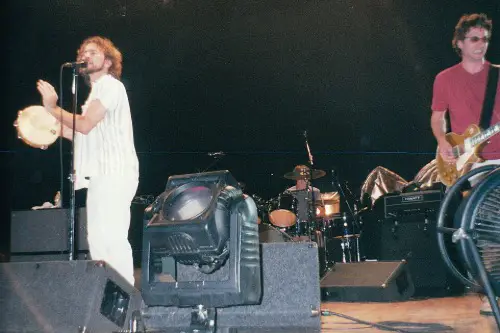
Vedder snarls this line like he’s spitting it out, and for good reason. “Not for You” is a full-throated rejection of corporate co-optation, especially the way the music industry commodifies youth and rebellion. The song takes aim at how culture is packaged and sold—especially culture meant to be raw, honest, and human. It’s Pearl Jam saying, loud and clear: this doesn’t belong to the system.
That stance feels revolutionary now, in an era where even anti-establishment messages are used in Super Bowl ads. Corporate America sells us “authenticity,” but always with a trademark. Vedder’s declaration is both a boundary and a warning: not everything is for sale. Unfortunately, today’s dystopia didn’t just ignore that message—it turned it into a brand slogan.
10. “I’m not like them, but I can pretend” – Nirvana, “Dumb” (1993)

This line is quiet but devastating. It sums up the emotional contortion required to survive in any rigid structure. Today, corporate culture rewards adaptability, but what it often means is: act like them, or else. Pretending is the price of belonging.
Cobain’s delivery makes it clear that this pretending comes at a cost. The self gets buried under performance, and the line between real and fake blurs. In the end, we’re all just playing roles in someone else’s story. And like Cobain, we start to wonder if we were ever real to begin with.
11. “I’m so happy ’cause today I found my friends / They’re in my head” – Nirvana, “Lithium” (1991)
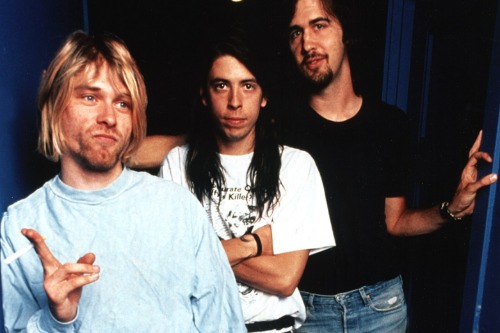
Mental health struggles were woven into grunge long before they were hashtags. Cobain didn’t glamorize depression—he exposed it. The lyric speaks to isolation, dissociation, and the mind’s desperate grasp for comfort in an unfriendly world. Sound familiar?
Today, the loneliness epidemic is real, and most of us are more connected and less seen than ever. Corporate life drains time and energy from real relationships. “Friends in my head” feels less like madness now, more like strategy. Cobain was naming something we’re still afraid to admit: we’re lonely, even when surrounded.
12. “No one knows what it’s like / To be the bad man / To be the sad man” – Limp Bizkit (covering The Who), “Behind Blue Eyes” (2003)
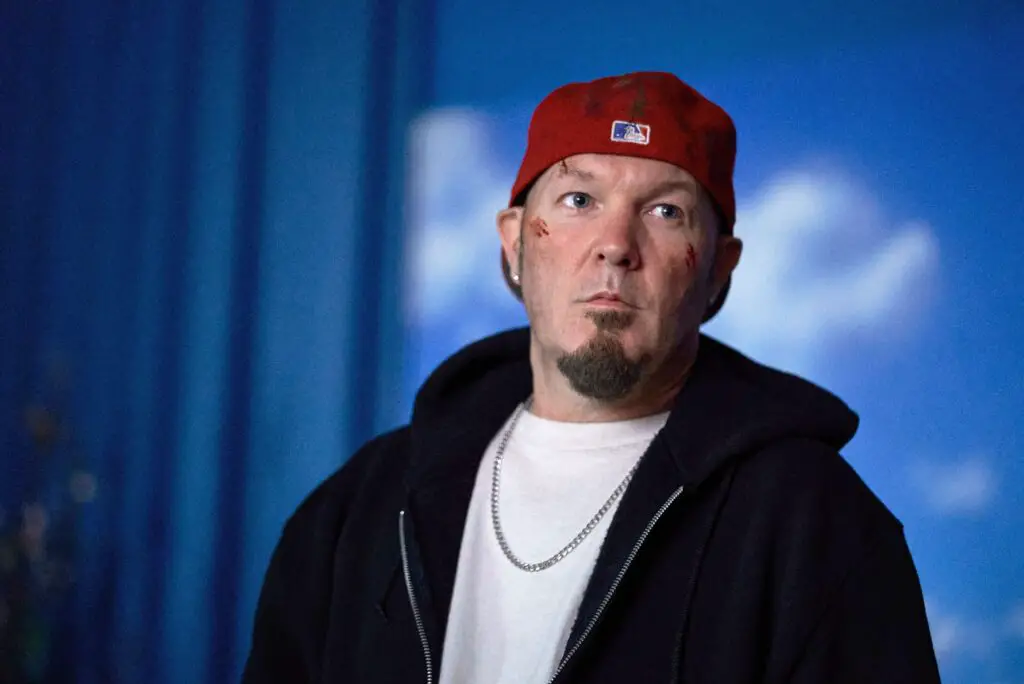
Yes, it’s post-grunge, but this one counts. Fred Durst’s version, for all its melodrama, struck a chord with people worn down by being misunderstood and misrepresented. The lyric is about being vilified while quietly suffering—a vibe many feel in hostile workplaces or online mobs. Reputation economy punishes without nuance.
You can be sad, but only in ways that are palatable. You can be angry, but only if it makes money. This lyric speaks to the weaponization of image and the erasure of complexity. In the age of surveillance capitalism, even your sadness is curated.
13. “There’s no love in fear” – Pearl Jam, “Thumbing My Way” (2002)

This tender, later-era lyric may not scream grunge, but it hums with its emotional DNA. Vedder is wrestling with vulnerability in a world that rewards self-protection and detachment. Fear is the fuel of modern capitalism—fear of losing your job, your healthcare, your status. And in that fear, love—real connection—gets strangled.
Today’s systems thrive on our anxieties. But this line reminds us of what we lose when we live in constant survival mode. It’s not just about money—it’s about meaning. And Vedder, still thumbing his way, reminds us that we’ve forgotten how to feel safe enough to care.
This post 13 Grunge Lyrics That Predicted the Corporate Dystopia We’re Living In Now was first published on American Charm.


